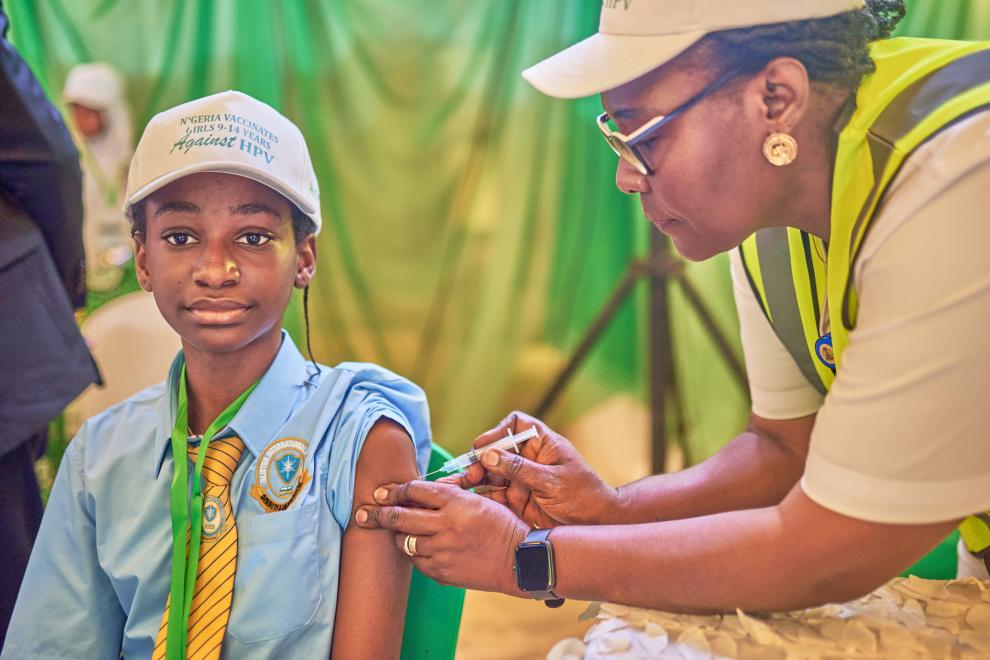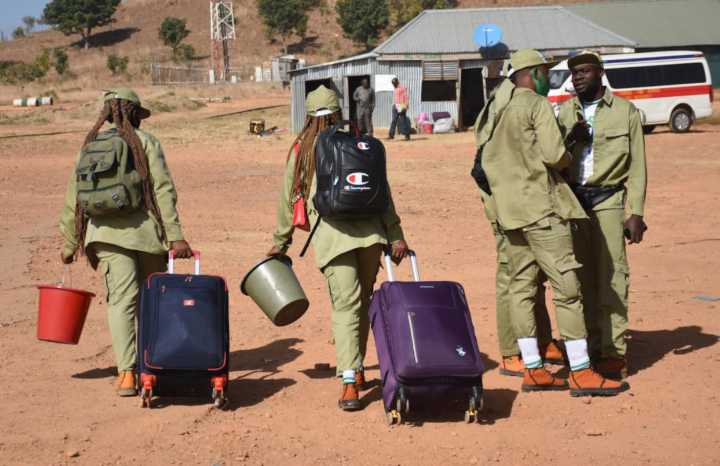Issues around HPV in Nigeria and prospects for change
At the Central Primary School, Gauraka, in Tafa Local Government Area of Niger State, a somewhat total ignorance was on display with regard to anything to do with Human Papillomavirus Vaccination (HPV) that is targeted at preventing cervical cancer in pupils aged 9 to 14 years in primary and secondary schools in Nigeria. The ignorance brought about some curiosity.
A female senior teacher at the school, Nana Usman Abdullahi, who volunteered to speak, simply said: “Sorry, I know nothing about HPV and we have not yet been sensitised about it.” Further prodding would not work, as the teacher still demonstrated a lack of awareness of the programme, despite what is understood to be a spiral effect of what the programme continues to enjoy across Nigeria at the moment.
Suddenly, a message dropped on her phone and she took an excuse to view it. It turned out to be a piece of vital information from an education supervisor in Minna, Niger State capital, intimating her of a 16-day sensitisation programme on HPV that would commence on November 28 2023 at the Planned Parenthood Federation of Nigeria (PPFN) office complex on Bay Clinic Road, Tunga, Minna. The launch of the programme in the state was a signal that the Gauraka Central Primary School teacher needed awareness that sooner than later, her school would get involved.
At the Junior Secondary School, Wuse Zone 6 Abuja, Federal Capital Territory, however, the Principal, who humbly pleaded anonymity, said she is not only aware of the programme but has also been fully involved.
Advertisement
“It’s been on since early September when the association of principals were called to a meeting in Abuja where modalities were spelt out,” she said. On compliance by her school, she also said: “As I said, we have been fully involved and cooperative and vaccination has gone well among my students.”
For the FCT, according to the Wuse school principal, the awareness is the same as the impact that the programme has had in the area so far.
Data released by the National Primary Health Care Development Agency (NPHCDA) as at November 16 2023, with regard to compliance with HPV across the country, did not capture Niger State. It is just as well that the programme has taken a slow start in the state, although stakeholders now look forward to recording huge success in the months ahead. Vaccination for 9-year-olds in the FCT has exceeded the 80% target to record 118%. But it has fallen short of the target for the 10-14-year-olds to record only 72%; trailing Kano, Akwa Ibom, Jigawa, Taraba, Nasarawa, Bauchi, Abia, Osun, Adamawa, Kebbi and Enugu states.
Advertisement
The status of Lagos State on compliance, which stands rather too low at 45% vaccination for 9-year-olds and a mere 28% for 10-14-year-olds arouses curiosity, if not paradox. The awareness campaign in Lagos has been at its highest in recent times and much had been expected with regard to the result, especially recalling the huge success that COVID-19 vaccination achieved in the state. But experts say it is only a matter of time before Lagos to “take its rightful place” on the log as efforts are currently being effected to get the state government and other relevant stakeholders, especially the media, involved in the war to rid young girls of future cervical cancer.
The HPV is responsible for about 95% of cervical cancer. Although 90% of infections clear within two years, some infections can continue for as long as 20 years, leading to full-blown cervical cancer. It is mainly for the foregoing reality that school-age girls are currently targeted.
Rivers State, like Niger State, is not yet captured on the data produced by NPHCDA. According to Dr. Joseph Urang, the Immunisation Officer in Rivers State, the low awareness of HPV in the state owes much to a seemingly endless war being waged against religious adherents and traditional leaders who have fallen short of educating their people on the need to get their children and wards vaccinated. But he heaped the larger blame on the political leaders who he believes tend not to prioritise health care. “I would like to see the political leaders paying more attention to health issues because only by so doing would programmes like HPV achieve success,” Urang said during a two-day media dialogue organised by the Child Rights Information Bureau (CRIB) of the Federal Ministry of Information and National Orientation in conjunction with the UNICEF held in Port Harcourt on November 22 and 23 at which he appraised journalists on efforts that were made to promote the programme in the state amidst challenges which he also described as arduous.
Urang, who said that the role of the media in the campaign cannot be overemphasised, also tasked the journalists to help diffuse the myths imposed on vaccines in Nigeria, which he insisted derives from deliberate ignorance.
Advertisement
Mrs. Margaret Adaba Soyemi of the Social and Behavioral Change Section of UNICEF, Abuja, who also presented a paper at the dialogue titled “Crisis Communication and Information Management”, urged the journalists to focus on disinformation and misinformation around the HPV with a view to dispelling them towards achieving the desired success for the vaccination programme. She listed the credible sources of information on HPV to include the World Health Organisation and UNICEF, representing the global reckon, as well as the NPHCDA, states and federal ministries of health and oncologists.
Both Urang and Soyemi are agreeable on one fact concerning the HPV in Nigeria: the vaccine is free, safe and effective. They passed the baton, as it were, to the journalists at the event who were in turn urged to pass the baton to Nigerians everywhere through their different media.
Views expressed by contributors are strictly personal and not of TheCable.
Add a comment







